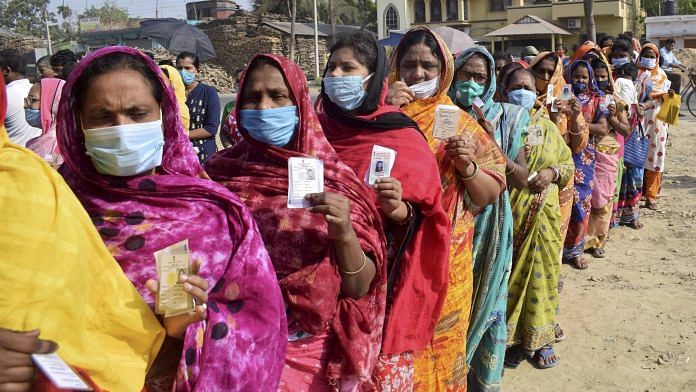When the results of UPSC exams were released recently, and women took the top three spots, everyone was ecstatic. But no one questioned why, after so many years of conducting exams, it took until 2022 for women to be the top scorers. People are surprised by women’s accomplishments because they are so often fewer in number. We’re still doing a campaign to promote women’s empowerment and gender equality in 2022. The only way for a woman to stand up for herself is to attain the highest political, economic, and educational positions.
Despite 76 years of Independence, women are excluded from decision-making at every level, from the family to the highest levels of government. Women’s decision-making participation in politics has the potential to have a significant impact on women’s empowerment. The Constitution (108th Amendment) Bill, 2008, which would reserve 33 per cent of Lok Sabha seats for women, has yet to pass in the Lok Sabha, demonstrating patriarchy’s opposition to women running for office. Panchayati Raj Institutions have played an important role in bringing women representatives to the grassroots. In several states, women candidates are given 50 per cent of the reservation in elections. The Women’s Reservation Bill will benefit from fundamental reforms at the party level, which are both necessary and strategic.
Women representatives from Panchayati Raj have done excellent work in the growth and overall well-being of society in villages, according to numerous studies, and many of them would undoubtedly want to work on a bigger scale, but they confront various problems in India’s political framework. Lack of sufficient political education, poor financial power of women in society, sexual assault, symptoms of insecure patriarchy, unequal division of family chores between men and women, and other issues are among the challenges. Panchayat spouses employing women as proxies in PRIs and exerting real authority is a fairly common occurrence in India. The Women’s Reservation Bill has passed its first barrier, according to a story published in India Today. ‘India ready to join 40 nations in reserving Par seats for women,’ which was published on 10 March 2010, reveals why India is still struggling to overcome the second obstacle 12 years later. The political empowerment score has decreased by 13.5 per cent, according to the Global Gender Gap Report 2021. Women ministers drop by 23.1 per cent in 2019 to 9.1 per cent in 2021.
In a country where half of the voters are women and policies are designed to benefit both men and women, they are entitled to equal representation in the governing and policymaking processes. The Constitution which guarantees fundamental right to equality should be obeyed. There are only two women among the 31 members of the Indian cabinet, including the prime minister. Men have long dominated ministries such as defence, environment, health etc.
Also read: 5 of 10 states with highest share of women legislators are from northeast. Here’s why
Women, education and empowerment
According to the Global Gender Gap Report 2020, India ranks 112th out of 153 nations in terms of educational attainment, indicating that education has a significant role in determining women’s participation. Education has an impact on women’s social mobility. Formal education, provided at educational institutions, allows for leadership development and instills key leadership skills. Women are unaware of their basic and political rights due to a lack of political understanding.
Women’s seats are reserved in countries such as France, Sweden, Argentina, Korea, New Zealand, Germany, and South Africa. Even though they are a developed country, they empower women in all professions. Germany, Europe’s largest economy, has had a voluntary mandate of 30 per cent for women on supervisory boards since 2015. Nearly half of all seats are held by women, resulting in significant advancement in every field. According to a study by New York Times columnist Nick Kristoff, “countries governed by women have a six-fold lower death rate than countries led by men in similar countries.” Female leaders like New Zealand Prime Minister Jacinda Ardern, US Vice President Kamala Harris, Finland Prime Minister Sanna Marin, and many others changed the world for the better in 2020, proving that reservation in politics benefited their respective countries.
Why shouldn’t women have a reservation if every other marginalised group in the country has one for improving their social and economic status? As our independence fighter Jyotiba Phule put it, When a woman is educated, she educates the entire society. I don’t believe the idea that women are incapable has any merit. When one woman achieves anything significant, she encourages 100 more women, and this is exactly what we want. “Where women are more educated and empowered, economies are more productive and strong. Where women are fully represented, societies are more peaceful and stable.”
The author is a student at Indira Gandhi National Open University, Delhi. Views are personal



